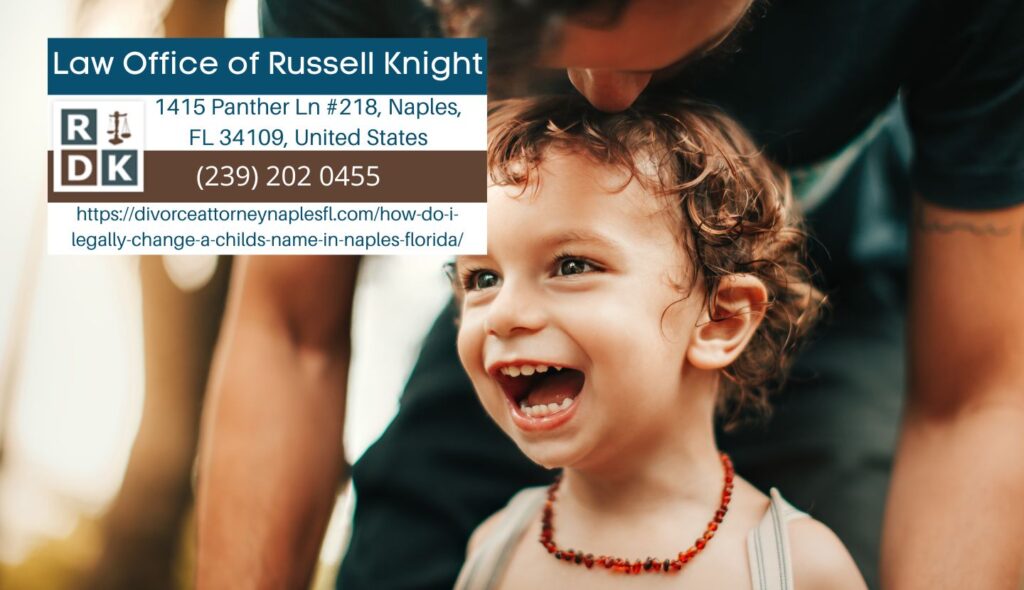In Florida, each party’s income determines what child support is owed by or paid to each party.
Not everyone receives the same salary every two weeks or even every year. High performing employees are rewarded by their employers with additional bonus income at irregular times during the year.
Bonuses keep employees working at a particular employer in the hopes that they will earn a bonus at some point later in the year.
When a Florida parent/employee does receive that bonus, how does that bonus affect the child support owed by that parent/employee or owed to the other parent?
How Is Child Support Determined In A Florida Divorce Or Parentage Action?
In Florida, child support is determined via a system called the “guidelines.”
“The child support guideline amount as determined by this section presumptively establishes the amount the trier of fact must order as child support for a minor child” Fla. Stat. § 61.30(1)
“The following guidelines schedule shall be applied to the combined net income to determine the minimum child support need:” Fla. Stat. § 61.30(6)
The Florida statute includes a massive chart of combined incomes and corresponding child support amounts.
For the sake of explanation, let’s use an example. I’ll assume one parent (Wilma) makes $ 2000 net income each month and the other parent (Fred) makes $ 6000 net income each month. The child support guidelines for those parents would be as follows:
Combine Monthly Number of Children
Net Income One Two Three Four Five Six
$ 8000.00 1290 2004 2513 2827 3085 3298
“Each parent’s actual dollar share of the total minimum child support need shall be determined by multiplying the minimum child support need by each parent’s percentage share of the combined monthly net income.” Fla. Stat. § 61.30(10)
So, if our two hypothetical parents had two children. The parent earning $ 6000 a month (Fred) would be responsible for 75% of the guidelines child support amount of $ 2004 or $ 1503. Likewise, the parent earning $ 2000 a month (Wilma) would be responsible for 25% of the guidelines child support amount.
Knowing these two numbers based on income, child support is then determined by the amount of time each parent spends with the child(ren).
“1. In accordance with subsections (9) and (10), calculate the amount of support obligation apportioned to each parent without including day care and health insurance costs in the calculation and multiply the amount by 1.5.
2. Calculate the percentage of overnight stays the child spends with each parent.
3. Multiply each parent’s support obligation as calculated in subparagraph 1. by the percentage of the other parent’s overnight stays with the child as calculated in subparagraph 2.” Fla. Stat. § 61.30(11)(b)(1-3)
In our example, Fred’s obligation $ 1503 is multiplied by 1.5 for $2254.5 and Wilma’s obligation of $ 501 is multiplied by 1.5 for $ 751.5.
Fred only has the children every other weekend for three nights total. 3/14 is 21.4%
Wilma then has the children the other 78.5% of the time.
Wilma’s obligation for child support is $ 751.50 X 21.4% = $ 160.80
Fred’s obligation for child support would be $ 2254.5 X 78.5% = $1769.78
“The difference between the amounts calculated in subparagraph 3. shall be the monetary transfer necessary between the parents for the care of the child” Fla. Stat. § 61.30(11)(b)(4)
In our example, Fred would owe Wilma $1769.78 less $160.80 or $ 1608.98 a month in child support.
As you can see, everything about child support except for parenting time is based on the parties’ monthly incomes.
Child support is calculated as money owed each month. Bonuses, however, are not paid every month. Bonuses are paid once or twice a year. How does a bonus impact the average net income of each party and subsequently the child support owed by or to that party?
Bonuses and Child Support In Florida
A bonus is part of a Florida parent’s income. Bonuses are included when determining income for the purposes of calculating a Florida child support obligation.
“Income shall be determined on a monthly basis for each parent as follows:(a) Gross income shall include, but is not limited to, the following:1. Salary or wages. 2. Bonuses, commissions, allowances, overtime, tips, and other similar payments.3. Business income from sources such as self-employment, partnership, close corporations, and independent contracts. “Business income” means gross receipts minus ordinary and necessary expenses required to produce income.4. Disability benefits.5. All workers’ compensation benefits and settlements. 6. Reemployment assistance or unemployment compensation.7. Pension, retirement, or annuity payments. 8. Social security benefits.9. Spousal support received from a previous marriage or court ordered in the marriage before the court. 10. Interest and dividends. 11. Rental income, which is gross receipts minus ordinary and necessary expenses required to produce the income. 12. Income from royalties, trusts, or estates. 13. Reimbursed expenses or in kind payments to the extent that they reduce living expenses. 14. Gains derived from dealings in property, unless the gain is nonrecurring.” Fla. Stat. § 61.30(2)(a)(emphasis mine)
“The child support statute plainly requires that bonuses be included in the calculation of gross income.” Haupt v. Haupt, 288 So. 3d 1275, 1276 (Fla. Dist. Ct. App. 2020)
Bonuses must be included in income but only if the bonuses keep recurring year after year.
“[B]onus income must be included in the calculations of both child support and alimony when it is regular and continuous.” Barlow v. Barlow, 224 So. 3d 868 – Fla: Dist. Court of Appeals, 2nd Dist. 2017
Bonuses by their very nature are not regular and continuous. Bonuses typically change every year.
“[B]onuses, [are] not guaranteed because they were given at his employer’s discretion. But under these circumstances [of regular bonuses] the trial court should have included the bonuses as part of the Former Husband’s income.” Edge v. Edge, 196 So. 3d 448 – Fla: Dist. Court of Appeals, 2nd Dist. 2016
How regular and continuous is “regular and continuous?”
In Dinardo vs. Dinardo the court found bonuses to be “regular and continuous” enough to be included as income even though “not guaranteed and in the sole discretion of his employer, the Husband has received regular and continuous bonuses nine (9) out of the thirteen (13) years he has been employed” DiNardo v. DiNardo, 82 So. 3d 1102 – Fla: Dist. Court of Appeals, 2nd Dist. 2012
When bonuses are found to be the result of a one-time event, they will not be included in income for the purposes of determining child support.
“[T]he evidence was uncontroverted that the extraordinary elevation in Former Husband’s 2012 income was not regular and continuous, but was instead due to a specific non-recurring event, i.e., the 2012 presidential election.” Rudnick v. Harman, Fla: Dist. Court of Appeals, 4th Dist. 2015
Outside of these one-time windfalls, it is an abuse of a court’s discretion to NOT consider bonus income solely because the employee cannot guarantee or even control the amount or timing of the bonus.
A Florida divorce or paternity court cannot “exclude [a] bonuses because it found that the payments and amounts were contingent and outside of [the party’s] control.” Parry v. Parry, 933 So. 2d 9 – Fla: Dist. Court of Appeals, 2nd Dist. 2006
Even if bonuses have been consistent enough to be included in income, the amount of the presumed next bonus should be based on the last bonus. Florida divorce and parentage courts should use the most current bonus when determining income for the purposes of child support.
A Florida “court should [rely] on the…the most recent bonus information available to it at the time of the final hearing.” Barlow v. Barlow, 224 So. 3d 868 – Fla: Dist. Court of Appeals, 2nd Dist. 2017
“[C]urrent income … should form the basis for the [support] award.” Crowley v. Crowley, 672 So.2d 597, 600 (Fla. 1st DCA 1996)
Bonuses are unpredictable and only arrive a few times a year. Courts should, at the very least accommodate that fact by requiring payment of support only when the parent receives the bonus.
A “court should modify the payment schedule for alimony and child support so that its payment coincides with the receipt of bonus income by the husband.” Shrove v. Shrove, 724 So. 2d 679 – Fla: Dist. Court of Appeals, 4th Dist. 1999
“We agree with the husband on this point and grant his request that the payment of permanent alimony be due on a quarterly basis [when he receives his quarterly bonus].” Coyne v. Coyne, 505 So. 2d 1115 – Fla: Dist. Court of Appeals, 2nd Dist. 1987
These same rules for determining if bonuses count as income for child support apply to determining income for the purposes of awarding alimony.
“[W]e have held that when a trial court calculates income for the purpose of awarding child support or alimony, it may not exclude from consideration bonuses that are regular and continuous.” Drew v. Drew, 27 So. 3d 802 – Fla: Dist. Court of Appeals, 2nd Dist. 2010
Bonuses are a big deal! People work very hard for their bonuses and giving a bonus up in child support stings even more.
Conversely, some people are mostly paid in bonuses. It would be an injustice not to include bonus income as part of a child’s support.
If you would like to speak to an experienced Florida divorce attorney about how your bonus or your child’s other parent’s bonus affects child support, contact our Naples, Florida family law firm today.
source https://divorceattorneynaplesfl.com/bonus-income-and-child-support-in-florida/





